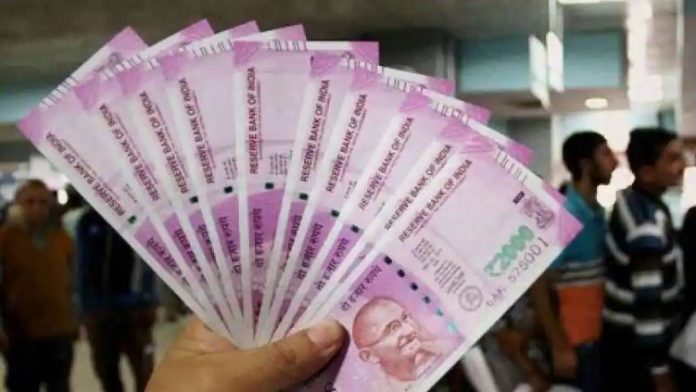NPS Investment: Investment under the National Pension Scheme: Any Indian citizen between 18 years to 70 years, whether a government employee or a private sector employee, can invest in it.
New Delhi: National Pension System Calculation: When you are in job or your income is good, then you can live the lifestyle of your choice very comfortably. But after retirement, when your regular income reduces or there is no source of income, then many problems can arise. Therefore, it is very important to do your retirement planning in time. Many salaried people spend many years of their job and a large part of their earnings during that time only on fulfilling their needs or hobbies. In such a situation, their retirement planning gets left behind. As several years pass, their tension regarding future expenses increases. Here we are going to tell you about a better solution to avoid this.
While many things are kept in mind while planning retirement, one should especially keep in mind the rapidly increasing inflation.
NPS: National Pension System can solve the problem
Many people do not understand where to invest when retirement approaches. Those having knowledge of financial planning say that the government pension scheme National Pension System i.e. NPS is a better option for this. This is the retirement saving scheme of the government. The Central Government launched it on 1 January 2004. This scheme is necessary for all government employees joining the job after this date. From 2009 onwards it was opened for private employees also.
What is National Pension Scheme?
National Pension Scheme (NPS) is a voluntary and long-term investment plan for retirement under the supervision of Pension Fund Regulatory and Development Authority (PFRDA) and the Central Government. NPS is a social security initiative of the Central Government. This pension program is open to employees of public, private and even unorganized sectors except the armed forces. Investment under the National Pension Scheme: Any Indian citizen between 18 years to 70 years, whether a government employee or a private sector employee, can invest in it. NRIs are also eligible for this. After opening the account in NPS, one has to contribute till the age of 60 years or till the maturity period of 20 years.
By investing Rs 10,000 every month in this scheme for 30 years, the monthly pension will be Rs 1 lakh, while on retirement you will also get a lump sum amount of around Rs 1 crore.
Returns and Interest
A part of NPS goes into equity, hence guaranteed returns cannot be found in this scheme. However, this scheme can still give higher returns than other traditional long term investments like PPF. If we look at the return history of NPS, till now it has given 9% to 12% annual returns. In NPS, you are also given the option to change your fund manager if you are not satisfied with the performance of the fund.
How much is the risk
At present, the limit on equity exposure for the National Pension Scheme (NPS) is 75% to 50%. For government employees this limit is 50%. Within the prescribed limit, the equity portion will be reduced by 2.5% every year starting from the year in which the investor turns 50 years of age. However, for investors aged 60 years and above, the limit is set at 50%. This stabilizes the risk-return equation in the interest of investors, which means the corpus is protected to some extent from equity market volatility. At the same time, the earning potential of NPS is higher compared to other fixed income schemes.
Tax rules
- U/S 80CCD (1): Customer contribution towards Tier 1 investment is eligible for tax deduction under section 80C up to an aggregate limit of Rs 1.5 lakh.
- U/S 80CCD 1(B): In addition to deduction under section 80CCD (1), customers are allowed deduction up to Rs 50,000 for Tier 1 contribution.
- U/S 80CCD (2): Employer’s contribution towards Tier 1 investment is eligible for deduction up to 14 per cent for Central Government and 10 per cent for others. This deduction exceeds the deduction limit applicable under section 80C. This deduction exceeds the deduction limit applicable under section 80C.
Other tax benefits
- Up to 25% of the amount withdrawn from Tier 1 contribution is exempt from tax.
Annuity purchase from NPS fund is tax free. However, later the income from such annuity is taxable. - Lump sum withdrawal of up to 40% of the corpus after the customer turns 60 is tax free.
- That is, after the age of 60 years, if the total fund value of NPS is Rs 20 lakh, then there will be no tax on lump sum withdrawal of 40% i.e. Rs 8 lakh.
- Additionally, if you buy annuity from the remaining 60% corpus, the entire amount will be tax free. Only the income from annuity is taxable.
NPS: Withdrawal rules after retirement
An investor can withdraw up to 60% of the total corpus as a lump sum. The remaining 40% amount goes into annuity. Under the new NPS guidelines, if the total corpus is Rs 5 lakh or less, the subscriber can withdraw the entire amount without purchasing an annuity plan. This withdrawal is also tax-free. For example, if a person has a corpus of Rs 4.5 lakh, he can withdraw the entire amount after retirement.
However, if the corpus is more than Rs 10 lakh, the limit for tax free withdrawal will be Rs 6 lakh. For the remaining Rs 4 lakh, he will have to buy an annuity plan. Even though withdrawals from NPS are tax-free, annuity is taxed depending on the income bracket.


